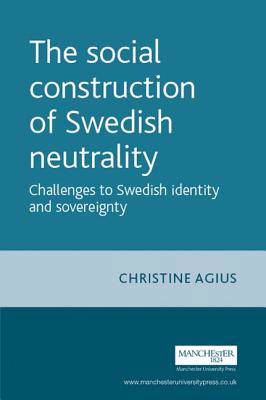
- Afhalen na 1 uur in een winkel met voorraad
- Gratis thuislevering in België vanaf € 30
- Ruim aanbod met 7 miljoen producten
- Afhalen na 1 uur in een winkel met voorraad
- Gratis thuislevering in België vanaf € 30
- Ruim aanbod met 7 miljoen producten
Zoeken
The Social Construction of Swedish Neutrality
Challenges to Swedish Identity and Sovereignty
Christine Agius
€ 116,95
+ 233 punten
Uitvoering
Omschrijving
The end of the Cold War and the "War on Terror" has signalled a shift in the security policies of all states. It has also led to the reconsideration of the policy of neutrality, and what being neutral means in the present age. This book examines the conceptualization of Swedish neutrality from the Peloponnesian War to today, uncovering how neutrality has been a neglected and misunderstood subject in IR theory and politics. By rethinking neutrality through constructivism, this book argues that neutrality is intrinsically linked to identity. Using Sweden as a case study, it links identity, sovereignty, internationalism and solidarity to the debates about Swedish neutrality today and how neutrality has been central to Swedish identity and its worldview.
Specificaties
Betrokkenen
- Auteur(s):
- Uitgeverij:
Inhoud
- Aantal bladzijden:
- 253
- Taal:
- Engels
- Reeks:
Eigenschappen
- Productcode (EAN):
- 9780719071522
- Verschijningsdatum:
- 1/10/2006
- Uitvoering:
- Hardcover
- Formaat:
- Ongenaaid / garenloos gebonden
- Afmetingen:
- 164 mm x 241 mm
- Gewicht:
- 530 g

Alleen bij Standaard Boekhandel
+ 233 punten op je klantenkaart van Standaard Boekhandel
Beoordelingen
We publiceren alleen reviews die voldoen aan de voorwaarden voor reviews. Bekijk onze voorwaarden voor reviews.











